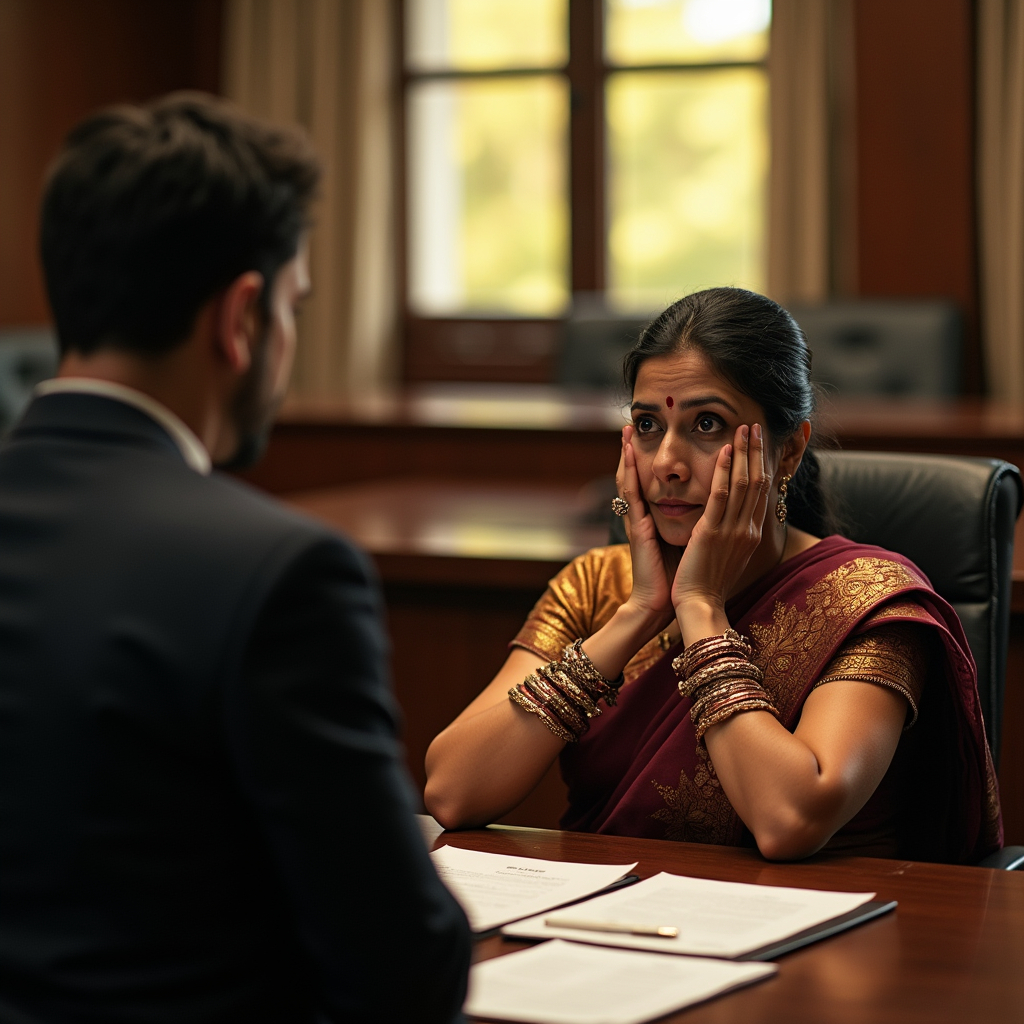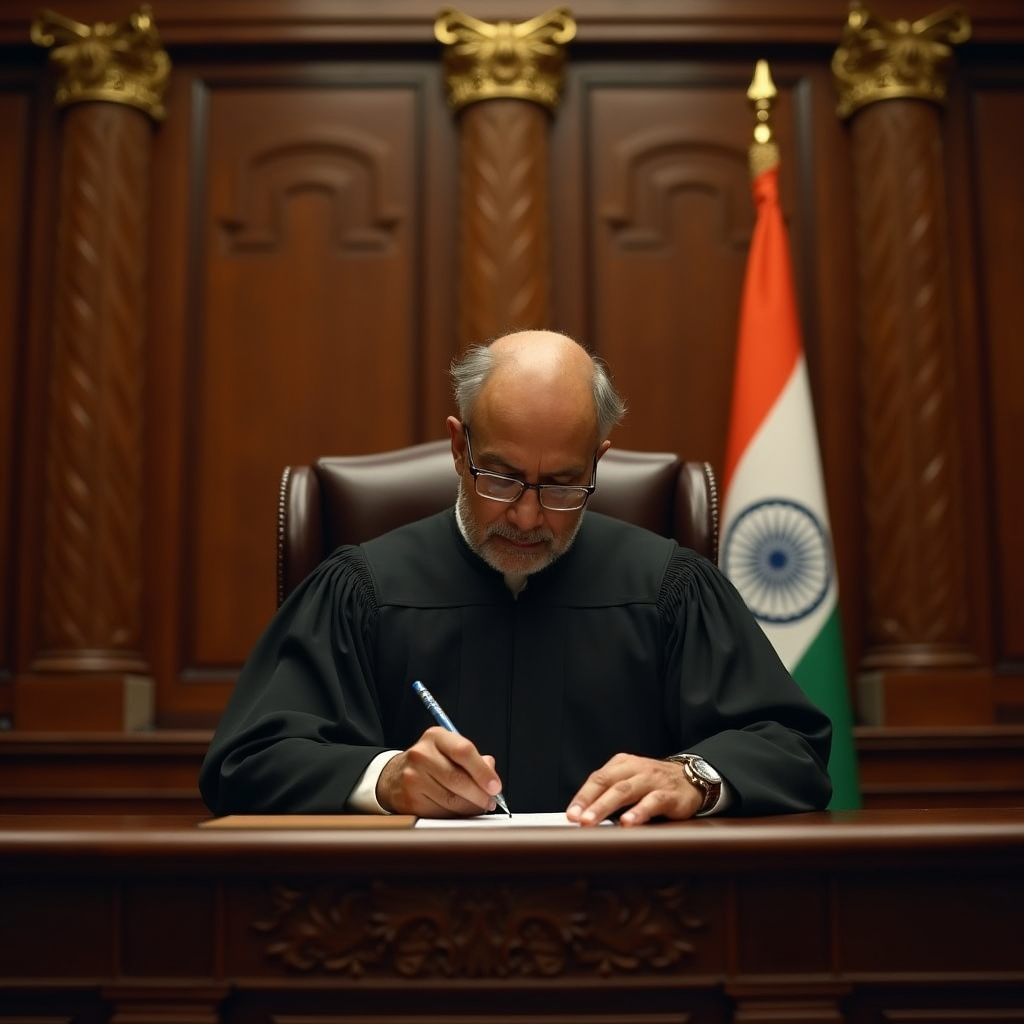This article is written by Arya Senapati. It attempts to analyse the case of Saroj Rani vs. Sudarshan Kumar Chadha (1984) through the lens of its factual matrix, legal issues, legal provisions involved, and the ultimate decision given. It deals largely with the validity of restitution of conjugal rights and is a matrimonial matter in its nature. The article also deals with other related case laws either supported or overruled by the case.
Table of Contents
Introduction
Marriage as a social institution has surpassed the test of time and has been seen to be integral to the formation of society, family structures, the continuance of race, and traditions. As a gregarious being, man requires companionship which the institution of marriage fulfils. While different traditions and cultures view the idea and institution of marriage differently, it is relevant in all of them due to its long-standing purpose and ethos. Especially in the Hindu society, marriage is considered as a sacrament and a holy union between two persons performed through ceremonial rites and practices to solemnise its legitimacy. Customary Hindu law considered marriage as a permanent union and did not envisage the concept of separation or divorce. The idea that subsumed under the legacy of Hindu marriage was that the bond stays eternal for lifetimes and cannot be broken through volition.
With the passage of time and the introduction of modern ideas, feminist movements, and the recognition of the impotence of individual liberty, divorce was introduced as a measure to tackle the irretrievable breakdown of marriage. Many grounds were recognised on which a spouse could divorce another. With domestic violence and cruelty on the rise due to the existence of patriarchal structures within society, the need was felt to codify laws relating to marriage so as to protect the rights of individuals within it.
Divorce became an important legal tool in the hands of many women who wanted to free themselves from the confines of a cruel and inconsiderate relationship. While it is not seen fairly for the state to interfere much in the realm of personal laws, it also is the duty of the state to safeguard social institutions and protect the rights of individuals within it. To balance these overlapping duties, the concept of restitution of conjugal rights was recognised. The main idea behind the restitution of conjugal rights was to allow the spouses to stay together or cohabit for a certain amount of time to fully ascertain whether they want to end their marital ties or if is there a scope for reconciliation. If the court sees scope for reconciliation, it would indefinitely try to protect the marriage from a breakdown.
While one school of thought took it positively and viewed it as an effective measure to protect the institution of marriage, the opposing stream viewed it as a state sponsored violation of personal privacy and liberty as well as the free will of women. Based on varying arguments, multiple decisions regarding the constitutionality of restitution of conjugal rights were made out of which the most prominent one is the case of Smt. Saroj Rani vs Sudarshan Kumar Chadha (1984), in which the Apex Court upheld the constitutionality of the restitution of conjugal rights as a remedy to preserve the institution of marriage and its solemn sanctity.
Details of the case
Appellant: Smt. Saroj Rani
Respondent: Sudarshan Kumar Chadha
Court: Supreme Court of India
Bench: Sabyasachi Mukharji, Syed Murtaza Fazalali
Date: 08.08.1984
Citation: 1984 AIR 1562
Facts of the case
The parties in this case are spouses who were married in the city of Jalandhar as per the Hindu Vedic customs and rituals on the date of 24th January, 1975. Their first girl child was born on the 4th of January, 1976, and was named Menka. They had their second daughter, Guddi, on the date of 28th February 1977. On the 16th May, 1977, they last cohabitated. On that day, the husband, who is the respondent in the case, removed the wife, the appellant from his house and withdrew himself from her society. In an unfortunate turn of events, their second daughter passed away on 6th August, 1977 at the house of the respondent. On 17th October, 1977, the wife sued the husband with claims of restitution of conjugal rights under Section 9 of the Hindu Marriage Act, 1955.
In the petition, the appellant claimed that the history of their marriage has been tough and tumultuous. There have been several instances of maltreatment towards her by her husband and his relations. After mentioning these instances, she prayed for the relief of restitution of conjugal rights through a decree of the court. On the date of 21st March, 1978, the Sub-Judge 1st Class passed an order which granted the appellant an amount of Rs 185 per month as maintenance during the pendency of the suit and Rs. 300 as expenses for the litigation. On 28th March, 1978, a consent decree was passed by the Sub-Judge which granted the restitution of conjugal rights.

It is important to note that the respondent denied any instances of maltreatment and denied the fact that he had thrown the appellant out of his house or had removed himself from her society or that he did not have any love and affection for him. Based on these premises, he agreed to a consent decree on the restitution of conjugal rights. The appellant alleged that she had gone to the respondent’s house and stayed with him for two days after the decree was passed. This fact was not accepted by any court and all the courts came to the conclusion that there has been no cohabitation after the consent decree granting restitution of conjugal rights was passed. This fact was not challenged in front of the Supreme Court.
On 19th April, 1979, the respondent filed a petition under Section 13 of the Hindu Marriage Act, 1955 alleging that one year has passed since the passing of the decree for restitution of the conjugal rights and there has been no cohabitation and therefore a decree of divorce must be granted to him on that ground. The appellant stated that her parents did take her to the respondent’s house after a month of the consent decree but the respondent kept her in his house for two days and then turned her out after that. The appellant also filed an application under Section 28A of the Hindu Marriage Act, 1955 stating that her husband should comply with the decree passed by the Sub-Judge and must establish cohabitation as per the decree. This application was pending before the Sub-Judge when the divorce petition was filed by the respondent.
Decision of District Court
The District Judge dismissed the petition for divorce filed by the respondent. The learned judge framed two legal issues. The first one was whether there has been no restitution of conjugal rights post the consent decree passed by the Sub-Judge and the second was regarding what relief is the husband entitled to as per law. After thorough consideration of all the evidence of all the civil and criminal cases which were pending with the parties, the District Court came to the decision that there has been no restitution of conjugal rights or cohabitation between the parties after 28th March, 1978 or the date on which the consent decree was obtained The District Court decided in favour of the respondent. Coming to relief entitled to the respondent, the Court observed that since the decree was consensual and during that period of time, no provision like Section 13B existed to grant a divorce by mutual consent, the respondent was not entitled to a divorce decree.
Punjab and Haryana High Court’s decision
Aggrieved by the decision of the District Court, the respondent filed an appeal in the Punjab and Haryana High Court. The wife contended that the husband cannot take the advantage of his own wrong which is his denial to cohabit with her. The High Court referred to the decision in the case of Dharmendra Kumar vs. Usha Kumari (1977) and stated that the appellant cannot be allowed to refer to this case in her contention as the husband was not taking any advantage of his mistakes or wrongs. In the case referred the Punjab and Haryana High Court had decided that it would not be reasonable to hold that the relief which was entitled to the party against whom a decree is passed or the restitution of conjugal rights should be denied to the one who doesn’t comply with the decree passed against him or her. As per the High Court, for a party to be wrong within the meaning of Section 23 (1)(a), the conduct that has been alleged has to be graver than a mere denial of a reunion offer. It must be a misconduct grave enough to defend the denial of the relief to which the parties are entitled to.
Based on this reference, the High Court rejected the contention of the wife that the husband can’t take advantage of his own wrong. The High Court held that the decree for restitution of conjugal rights was not a consent decree in its true nature but was rather a collusive one and therefore it disentitles the husband for a divorce decree. The judge of the High Court dealing with this case felt that this issue requires more attention and deliberation and therefore, he referred the matter to the Chief Justice and sought for a constitution of a Division Bench of the High Court to consider the matter.

The matter then moved to the Division Bench and Chief Justice Sandhawalia took into consideration various authorities of law and concluded that a consent decree cannot be termed as a collusive one to disentitle the husband from receiving a decree for restitution of conjugal rights. The division bench noted that the counsel representing the wife before the division bench did not make any reference to the factual findings of the Trial Court and did not deny the fact that there was no restitution of conjugal rights after the decree was passed. The counsel did not even rely heavily on the defence that the husband should not be allowed to take advantage of his own wrong as he refused to cohabit through the execution of the consent decree. The counsel simply relied on the ground that the decree was a collusive one. As per the decision taken by the Full Bench of Punjab and Haryana High Court in the case of Joginder Singh vs. Smt. Pushpa (1968), the majority of the judges held that a consent decree cannot be said to be collusive in all cases, and in cases where the parties had consented to the passion of the decree post various attempts to settle the dispute, the language used by Section 23 of the Hindu Marriage Act, 1955 doe not disentitle the husband from getting a decree. Section 23 simply states that whenever the Court seeks to grant any relief provided by the Hindu Marriage Act, 1955, it is duty bound to attempt to reach a reconciliation between the parties wherever it is practically possible before passing a decree granting relief. Based on all these aspects the High Court held that it is not possible to hold the decree to be a collusive one and the husband cannot be disentitled from a decree granting him relief. Aggrieved by this decision the wife challenged the same through an appeal to the Supreme Court.
Legal issues involved
There are a few primary but important legal issues that the Apex Court dealt with while deciding this matrimonial dispute. They are:
- Is Section 9 of the Hindu Marriage Act, 1955 which deals with the restitution of conjugal rights violative of Articles 14 and 21 of the Indian Constitution?
- Is the respondent entitled to a divorce decree even after failing to comply with the consent decree granting the restitution of conjugal rights?
Understanding Section 9 of Hindu Marriage Act, 1955
Section 9 of the Hindu Marriage Act deals with the concept of restitution of conjugal rights. The principle behind restitution of conjugal rights is that whenever a conflict exists between two parties, either of them can seek restitution as a remedy. In this form of remedy, the spouses are made to resume cohabitation with each other and assess if they can reconcile their differences and move forward to maintain their matrimonial relationships cordially. Whenever one of the partners withdraws either voluntarily or is removed by force from the shared household or society of the other, this remedy comes into play. The Court grants a decree of restitution of conjugal rights and orders the partners to cohabit with each other. The primary objective is to maintain and preserve the sanctity of marriage as it is considered as a sacrament in Indian traditions.
In the case of Smt. Saroj Rani vs. Sudarshan Chadha (1984), marriage was defined as a union between a husband and a wife who share a common life and participate in each other’s social surroundings, and activities, share happiness, and support each other in moments of trouble. Sexual intercourse has also been viewed as an aspect of matrimonial relationships even though not as a primary constituent of marriage that the Courts can impose the restoration of without the will of a partner. On the contrary, through the application of Section 9, the court can impose a restoration of common life, household, and society as a form of relief for an abandoned spouse.
Section 9 provides that in a circumstance where a husband or a wife withdraws from the society of the other without having any reasonable grounds, cause, or explanation, then the other spouse can file a petition to the District Court and claim the remedy of restitution of conjugal rights to preserve their matrimonial relationship. Once the Court is satisfied with the fact that the abandoning spouse has no reasonable ground for withdrawing themselves from the society of the other spouse, it can grant a decree of restitution of conjugal rights.

As per the provision, the following conditions must be met for sanctioning a decree of restitution of conjugal rights:
- Either of the parties has withdrawn themselves from the life and society of the other spouse without having any reasonable cause/ ground or explanation.
- The Court believes that the statements made by the petitioning party are true and well substantiated.
- There exists no legal ground to decline the petition of restitution and refuse the remedy to the petitioner.
The meaning of the term “society” has been understood to be cohabitation and companionship which is usually expected out of a matrimonial relationship. Therefore withdrawal from society has been construed as the removal from a conjugal relationship.
In the case of Mrs. Manjula Zaverilal vs. Zaverilal Vithal Das (1973), the Court held that whenever an aggrieved party files a petition praying for restitution of conjugal rights and shows sufficiently that the respondent had withdrawn themselves from the society of the aggrieved party without any reasonable cause, then the court can grant the relief of restitution of conjugal rights.
Arguments for the appellant
The counsel for the appellant (wife) argued that the respondent (husband) did not intend to stay with his wife even after seeking a restitution decree. Even after obtaining the consent decree for restitution, the husband denied cohabitation with the appellant. The appellant had obeyed the decree and had gone to stay with him but after two days he kicked her out of his house. Therefore, the husband should not be granted a divorce decree as he should not be allowed to take benefits of his own wrongs. The counsel argued that the respondent wanted a divorce from the initial phase of the litigation and that the consent decree was simply a strategic move to manipulate the case in his favour.
Arguments for the respondent
The respondent argued that the appellant did not cohabit with him even after the consent decree was passed. He stated that the appellant’s statement that she attempted to resume cohabitation and also resided with him for two days after which she was kicked out is a fabricated and false statement. The act of the appellant has caused him great hurt. The consent decree was not of a collusive nature and therefore he should be granted divorce due to the irretrievable breakdown of their marriage.
Judgement by the Supreme Court
The Supreme Court is of the view that the facts on record make it clear that the decree was not a collusive one and that there was no secret agreement between the parties. The Apex Court noted the fact that the wife had made certain allegations against the husband which he had denied and he had stated that he was agreeing to take her back and cohabit with her. Based on these facts, the consent decree was passed. As per the Apex Court, it was impossible to find any collusion between the parties and agreed with the decision of the majority of the Division Bench of the Punjab and Haryana High Court that as per the case of Joginder Singh vs. Smt. Pushpa (1968), not all consent decrees as collusive in nature. Especially when it comes to matrimonial disputes, consent decrees cannot be deemed as collusive. It is evident from the legislative intent behind Section 13B of the Hindu Marriage Act, 1955 that concepts like divorce by mutual concept are not alien to the regime of divorce law in India but since this matter came prior to the introduction of the provision, it could not be applied in this case. Based on these observations, the Supreme Court accepted the majority view of the division bench of the Punjab and Haryana High Court on the legal issue of whether the decree was a collusive one or not.
Further, the Apex Court observed that in the appeal before the Supreme Court, the counsel representing the appellant-wife did not challenge the finding of the Division Bench which held that the consent decree can be substantiated in law as it was not collusive in nature. Rather, the counsel tried to urge that the expression “wrong” as mentioned in Section 23(1)(a) of the Hindu Marriage Act, 1955 which prohibits a party from taking advantage of his own wrong, disentitles the husband from the decree of a divorce. The counsel argued that the husband-respondent from the initial point wanted a divorce decree in his favour. Based on this want, he did not object to the passage of the decree for the restitution of conjugal rights. The appellant argued that the husband agreed to the decree of restitution of conjugal rights being absolutely aware that he sought a decree of divorce ultimately. He was aware that he was not going to honour the decree. It was argued that he intended to mislead the court and the appellant and then refused the restitution of conjugal rights and therefore he should not be allowed to take advantage of his own wrongs. The Apex Court observed that there is no mention of these allegations in the pleadings of the appellant. When this want was pointed out by the bench of the Apex Court, the counsel prayed for an opportunity to amend his pleading and stated that the parties should not suffer because of the mistake of the counsel.

The Apex Court observed facts in this case which cannot be ignored. Firstly, there existed no pleading on the arguments vehemently relied upon. Secondly, the argument was not taken before any other court prior to the Apex Court. Thirdly, the facts which are led and the allegations which are made by the wife in the Trial Court and in the Division Bench of the High Court were contradictory to the allegations made before the Apex Court.
The Apex Court observed that the wife built her entire case on the fact that she and her husband entered cohabitation for two days only after the consent decree granting restitution of conjugal rights was passed. The ground that was then urged by the wife was that the husband sought to obtain a decree of judicial separation by entrapping the wife and not cohabiting with her so as to obtain a divorce decree. These contradictions arising in the wife’s case make her arguments weak and unsubstantiated. As per the Apex Court, there existed no scope for granting time to amend the pleadings at this stage of the case as it would have allowed her to present facts inconsistent with the case.

The counsel for the appellant urged the Apex Court to interpret the phrase “taking advantage of his or her own wrong” in such a manner that it would prevent cunning husbands from defrauding Indian wives and making them suffer at the instance of their dishonest husbands. Based on this augment, the Apex Court observed that there is no scope for the factual application of such an interpretation in this instant case and such interpretation would also require legislative interference not within the powers of the court. Therefore the Apex Court did not accept the contention. The Apex Court reached the conclusion that in the absence of any mental compunction and in the presence of a situation that shows that the marriage has broken down and parties cannot live together any longer as husband and wife, it is better to close the relationship.
Further, the Apex Court’s attention was drawn to the decision taken by a learned single judge of Andhra Pradesh High Court in the case of T. Sareetha vs. Venkata Subbaiah (1983), in which the judge had observed that the remedy of restitution conjugal rights between two spouses as has been envisaged in Section 9 of the Hindu Marriage Act, is a savage and barbaric remedy which violates the right to privacy and human dignity which manifestly arises from the Article 21 of the Indian Constitution.
The learned single judge declared Section 9 dealing with restitution of conjugal rights as constitutionally void as it is an established principle of constitutional law that any statutory provision that violates the rights mentioned in Part 3 of the Indian Constitution shall be declared as void in terms of Article 13 of the Constitution. The learned judge had stated that Article 21 which guaranteed the right to life and personal liberty and its negative interpretation states that no state authority can take away the life or personal liberty of a person except as per the procedure established by law. This fundamental right is of extreme significance to every citizen and must be protected at all costs. The learned judge observed that whenever a decree for restitution of conjugal rights is passed, it results in the highest transgression of the individual right to privacy as a woman is denied of her free will as to when and how her body is supposed to be the vehicle for procreation of another human being.
As per the learned judge, the decree for restitution of conjugal rights deprives a woman of her choice and bodily autonomy over intimate decisions. As per the learned judge, a woman who wants to stay away from her husband because of a permanent or temporary marital rift cannot be forced to stay with her husband and be made to bear a child with her husband despite her denial. Such a remedy enforced on her at a time when she is considering getting a divorce complicates her state of mind, body, and life and imposes lifelong trauma. The learned judge stated that the provision did not serve any public purpose that is legitimate and there is no conception of the general good arising from the provision. Therefore, the provision is not subservient to social good.
The provision was held to be arbitrary and discriminatory as per Article 14 of the Indian Constitution which dealt with the right to equality. As per the observations of the learned judge, the provision offended the test for reasonable classification as it made no distinction between a husband and a wife as it made the remedy available to both but it is worth noting that mere equality of treatment despite unequal reality is not ideal to tenets of justice or constitutionality. The learned judge also observed how the remedy of restitution of conjugal rights was largely sought by the husband and not the wife.

The observations of the learned judge were dissent in the decision of Harvinder Kaur vs. Harmander Singh Choudhry (1983) which was delivered by the Delhi High Court. In the decision, the learned judge held that the provisions of Section 9 are not violative of Articles 14 and 21 of the Indian Constitution. He opined that the purpose of a restitution decree was to foster cohabitation between the estranged parties to ascertain if they could possibly live together in matrimonial harmony in a shared household. The primary idea behind the provision is to preserve the institution of marriage. Sexual intercourse is simply one of the things that cohabitation consists of. It cannot be equated to the only thing that represents cohabitation. The Courts cannot and do not enforce sexual intercourse between spouses. Marital relationships comprise of a lot many things of which sexual relations are only a par. It is rather unsubstantial and of a trivial nature. The remedy is aimed towards matrimonial amity and not sexual intercourse. It is a legal fallacy to equate matrimonial cohabitation with sexual intercourse and to hold restitution of conjugal rights as government authorised invasion of marital privacy.
After observing both the decisions, the Apex Court in this instant matter adopted the view taken by the Delhi High Court. Conjugal simply refers to anything that pertains to marriage and to the relations shared between husband and wife. Conjugal rights imply the right of spouses to be a part of each other’s society. It is an inherent aspect of the institution of marriage. There are necessary safeguards in place in Section 9 to prevent abuse of the section. The Apex Court noted that Section 9 is merely the codification of a law that existed much before it. The law was Order 21 Rule 32 of the Civil Procedure Code, 1908 which dealt with the specific performance of restitution of conjugal rights or an injunction for the same. It stated that whenever a party against whom a decree for the specific performance of a contract or for the restitution of conjugal rights or an injunction is passed and the party has the option of obeying the decree but has intentionally avoided it, the decree can be enforced by attachment of property.
It is important to understand that, unlike a decree for the pacific performance of a contract, the impunity for restitution of conjugal rights is provided by the court where there is wilful disobedience towards such a decree. In such cases, their properties can be attached to execute the decree for restitution of conjugal rights. It is a form of financial sanction which is imposed by the courts. It has been regarded as an important measure to protect the sanctity of marriage as a social purpose. The Apex Court therefore stood against the view of the learned judge of the Andhra Pradesh High Court and upheld the constitution of the provisions regarding restitution of conjugal rights.
The Apex Court also referred to another decision of the Andhra Pradesh High Court namely Geeta Lakshmi vs G.V.R.K. Sarveswara Rao (1982), in which the learned judge had held that the admitted misconduct of the husband is not merely restricted to disobeying the decree for restitution of conjugal flights but also ill-treating her and driving her away from their home. Based on this reasoning, the court had denied the husband a decree under Section 13(1A) for divorce. The facts of this case were seen to be very different from the present case before the Apex Court and therefore the Apex Court did not pay much consideration to the precedent as in the current case, there was no allegation or evidence of ill-treatment by the husband or any instance where the wife was removed from their home.
Based on all these factors, The Apex Court finally decided that the husband is entitled to a divorce decree but considering how an Indian divorced wife is always at a material disadvantage, the husband must be ordered to pay maintenance to the wife after the final decree of divorce is granted until the wife remarries and the husband also has the duty of maintaining their only living daughter from the marriage. Separate and distinct maintenance must be paid to the wife and to the daughter. The court also imposed the costs of this appeal on the appellant. The appeal was thus dismissed.

Who can file a petition under Section 9 of the Hindu Marriage Act, 1955
Either of the spouses has the liberty to file a petition under the provision. Either of the spouse who is aggrieved by the other spouse withdrawing themselves from his/ her society without any just or reasonable cause can file a petition to compel the restoration of their marital relationships and cohabitation. The petition is usually filed at a Family Court which has jurisdiction over the area where the marriage was performed, or where the spouse used to live together, or where the spouse that has withdrawn themselves is currently residing. The Family Court gives both sides the opportunity to present their case. The aggrieved party must establish that the respondent spouse withdrew themselves from the society without any reasonable cause and the respondent spouse must establish any reasonable cause which led him/ her to leave. Some of the reasonable causes can be cruelty, domestic violence, mental or physical abuse etc. After hearing both the parties the court may grant a decree of restitution of conjugal rights and compel the abandoning spouse to resume cohabitation with the abandoned spouse.
Mode of execution of the decree
The decree for restitution of conjugal rights is executed through Order 21 Rule 32 of the Code of Civil Procedure, 1908. The provision states that whenever a decree for restitution of conjugal rights is imposed on a person and the person willfully disobeys such decree, then it can be executed by attachment of his/her property. If such property remains attached for six months and the judgement-debtor still hasn’t obeyed the decree, the decree-holder can apply for the property to be sold, and in that case, the Court may arrange for the sale of such property and any proceeds arising out of it can be given to the decree holder in form of equitable compensation. The remaining portion can be given to the judgement debtor.
Rejection of petition for restitution
In the case of Sushila Bai vs. Prem Narayan (1986), the Court made a reference to valid grounds of defence for a petition of restitution of conjugal rights which can be proved to claim rejection of the same. They are:
- The respondent can defend by claiming any other matrimonial relief against a suit for restitution of conjugal rights
- The respondent can also provide evidence of misconduct by the petitioner which soured their relationship and made him/ her leave the other spouse.
- A circumstance where it is not possible for both the spouses to live together is also a valid defence against a petition for restitution of conjugal rights.
Some grounds for rejection can be:
- Cruelty of any form (mental, physical, economic, sexual) conducted by the petitioner of his relatives
- Matrimonial misconduct on the part of the petitioner which must have caused problems for the respondent to continue living with the petitioner
- Remarriage or bigamy of either of the spouses
In terms of Burden of proof, in the case of Mrs. Aruna Gordon vs. Mr G.V. Gordon (1999), it was held that initially, the burden of proof remains on the petitioner to prove that the respondent withdrew themselves from his/her society without any reasonable cause or ground. Then the burden of proof shifts to the respondent to prove that the statements made by the petitioner are wrong or to show that he/she had reasonable grounds for such withdrawal.
Landmark decisions on the restitution of conjugal rights
The judicial decisions on this matter leave a trail of principles and interpretations. While in the case of Saroj Rani vs. Sudarshan Chadha (1984), the Apex Court upheld the constitutionality of Section 9, there have been many other cases where the provisions have been duly interpreted.
Smt. Sushila Bai vs. Prem Narayan Rai (1985)
Facts
The case begins with the appellant (wife), filing an application under Section 9 of the Hindu Marriage Act in the District Court of Gwalior in which she prayed for a decree of restitution of conjugal rights. The application stated that she was married to the respondent on 28th June, 1972 and after their marriage, they resided together. During the subsistence of their cohabitation, she faced multiple instances of mistreatment and was subjected to assault by the respondent She continued cohabitation even after such a troublesome situation yet on 1st May, 1977, the respondent abandoned her by leaving her at her parent’s house with clear instructions o not sending her back to him unless he asks for the same. Many letters were sent by her parents seeking the respondent to take the appellant back but they were not answered.
After going through the evidence, the District Court found out that the primary issue is that the wife seeks to stay with the husband in Bhopal where he is posted as a government employee but the husband wants the wife to reside with his father, mother and sister. The appellant just like any other wife, seeks to be in the company of her husband and experience marital bliss with him but the husband has continually expressed his desire to keep his wife away due to a lack of space and funds.

The Trial Court had rejected the evidence produced by the wife on the ground that there was no corroboration for all the statements made by her witnesses who are also unreliable as they are her close relations. The Trial Court found the testimony of the witness from the respondent’s side more reliable and reached the conclusion that the husband cannot be said to have deserted the wife/ appellant.
On close inspection of the facts and statements, the High Court of Madhya Pradesh believed that the statements made by the witnesses of the appellant were sufficiently corroborated and that she did not herself withdraw from their cohabitation. The fact that the husband deserted her can be corroborated by all the letters sent by her father to the respondent. The High Court found it hard to substantiate the judgement of the Trial Court as to what more amount of corroboration could have been required. The High Court ultimately reached the conclusion that the testimony provided by the witnesses of the appellant is reliable and there was no reason to decide that the wife herself withdrew from the matrimonial relationship with the respondent
Issues
The primary legal issue that arose in this case was that did the wife herself withdrew from the matrimonial relationship with her husband i.e. the respondent. The Court tried to answer the legal issue that when it is alleged that a spouse has withdrawn themselves from a matrimonial relationship, on whom does the burden of proof lie?
Arguments
The appellant argued that the respondent abandoned her by deserting her at her parent’s house and despite multiple letters and requests from her parents, the respondent did not wish to take her back. The respondent kept denying her the opportunity to stay with him because of a lack of space and insufficiency of funds. On the other hand, the respondent stated that there had been no instance of cruelty towards the appellant and that he did not desert her. As per the respondent, the appellant left him on her own will. The respondent alleged that the appellant had deserted him and withdrew herself from his society.
Judgement
The High Court started by defining the principle of restitution of conjugal rights by stating that it is a remedy for when either of a spouse, without any reasonable grounds, withdraws himself or herself from the society of the other. In such a situation, the aggrieved spouse has the remedy to file a petition to the District Court for the restitution of conjugal rights and when the court believes in the pleas made by the parties based on the evidence and statements presented by them, it can grant a decree for restitution of conjugal rights provided that there was no legal ground for denying such relief.
The High Court further states that to be able to substantiate a petition for the restitution of conjugal rights, it is a requirement to prove that the respondent has voluntarily withdrawn from the society of the petitioner. Here, society means conjugal society, and therefore the onus is on the petitioner to succeed in the case by the strength of his own pleadings and not by the weakness of the defence provided by the respondent. The Explanation added to Section 9 after the amendment to the Act is 1197 is merely a rule of evidence which states that the burden of proof with regards to a question relating to whether there was a reasonable ground for the respondent to withdraw from the society of the petitioner lies on the party who is pleading the excuse or ground. The burden of proof is not heavy in these cases as the spouses are expected to cohabit with each other and the one who chooses to live separately has to prove the existence of such situations which created reasonable grounds for him/ her to make that decision. At that moment, the burden of proof would naturally shift to the party to show that she withdrew herself from the society of the other based on reasonable grounds.
The High Court states that based on the evidence of the respondent, it is evident that there exists no ill intention towards his spouse and that he is ready to take her back and resume cohabitation. The issue that stands distinctly on its own is whether the respondent is prepared to keep her at Bhopal or at Bina. The Court observes that in this case, neither did the husband attack the chastity of the wife nor did the wife accuse the husband of having any extra marital problem. If the Trial Court had granted the relief sought by the wife, the spouses could have resumed their differences in no time. The lack of conjugal companionship is a problem that is extremely common in most matrimonial relationships and is something that is equally craved by both genders. This often leads to trivial disputes between them. To maintain the interest of matrimonial relationships, it is important to have safeguards in place against hasty separations and divorces,

The Court is of the opinion that there exists no ground as to why the wife should desert her husband and choose to become dependent on her parent’s resources. The appellant has proven to be sincere and has a bona fide desire to resume matrimonial cohabitation with her husband and fulfil all the rights and duties which are expected in such cohabitation. This case is not one where the wife seems to be educated and independent. The wife desires nothing else but simply to be closer to her husband and his heart. By attaining this goal, if she can receive fulfilment, then the Court must provide her adequate recourse by restitution of conjugal rights. Based on this reasoning the High Court held that the appeal was allowed and the impugned order of the Trial Court was set aside and further theCourt granted a decree of restitution of conjugal rights under Section 9 of the Act in favour of the wife/ appellant along with costs which should be paid by the respondent to the appellant as costs of the appeal.
Harvinder Kaur vs. Harmander Singh Choudhry (1983)
Facts
In this case, the constitutional validity of Section 9 of the Hindu Marriage Act, dealing with the restitution of conjugal rights was challenged and the Delhi High Court primarily restricted its observations on the issue of constitutionality of Section 9 as a substantial question of law rather than delving into the details of the facts of the case. Simply, the husband had sought the restitution of conjugal rights and the wife opposed it. The District Court granted a decree of restitution of conjugal rights to the husband and the appeal is preferred from the same decree wherein the wife has challenged the constitutional validity of the provisions granting restitution of conjugal rights.
Issue
The issue involves a substantial question of law which is whether the provisions granting restitution of conjugal rights as a remedy to a spouse who has been abandoned or deserted by the other spouse amounts to violation of constitutional provisions.
Judgement
As per the High Court, one must understand that a court cannot enforce and will never enforce sexual intercourse on a partner. The argument that by restituting conjugal rights, the Court is enforcing sexual relations on a spouse without his/ her consent falls flat because conjugal rights are much more than simple consummation. The Court accepted that sexual relations do constitute an important part of marriage and marital relations but it is also true that they are not the whole of what a marriage is and is neither important to the other aspects of marital life and bliss. Marriage has always been viewed as a mechanism towards procreation and education of children but it also has objects in mutual society, strength and support, companionship in prosperity as well as adversity. Marriage is one of the most pure relationships in which an individual can be tagged in. It is a relationship entered with an object to benefit each of them as well as benefit third parties and their common offspring.
The Court provided an illustration that stated that a person’s house is his castle and fortress. The spouses can seek a roof for protection behind the door of their family house which any civil institution and authority should not be able to penetrate in any manner. The effect of constitutional law into the folds of the domestic relationship of husband and wife will affect the very foundation of a relationship. Such imposition of constitutional principles on domestic relationships will lead to a multiplicity of litigation and challenge the sanctity of matrimonial relationships. It would lead to an attack on the protections and safeguards on which the matrimonial relationships rely. The courts cannot question the wisdom of the legislature but rather only put it into effect and do the best that they can to the laws as the Parliament intended them to be used. If reconciliation fails in a marriage, the question of maintenance comes into the picture.
Therefore, the Court is of the opinion that there are enough resources for partners to take in case the marriage irretrievably broken down and in such a situation it can’t be said that the court forced them to resume cohabitation with each other despite irreconcilable differences. Therefore, based on all these factors, the court reached the conclusion that Section 9 is not constitutionally void. In this case, the court decided that a decree for the restitution of conjugal rights can act as an inducement for couples to live together but the court can not force either party to come into a physical relationship with each other. The essence of matrimonial relationships is duly addressed and covered in the details of this judgment.
Recent challenge to the Constitutionality of restitution of conjugal rights
Recently, the students of Gujarat National Law University filed a writ petition in 2019 challenging the constitutionality of restitution of conjugal rights under various family laws but primarily Section 9 of the Hindu Marriage Act, 1955. The case is referred to as Ojaswa Pathak vs. Union of India (2019) and is undecided. The grounds of challenge were largely based on the premise of the bodily autonomy of a woman. The petition stated that a decree for restitution of conjugal rights stands against the autonomy of a woman; it forces her to return to her husband’s home where she might be subjected to cruelty or misconduct of some sort. The second primary ground of contention is regarding the sexual autonomy of a woman.

The petitioners state that the order for restitution of conjugal rights affects the sexual autonomy of a woman and forces her into a situation where she might be forced to have sexual intercourse with her husband without her own will as consummation and intercourse form integral aspects of cohabitation. They state that this is against Article 21 of the Indian Constitution as it affects the right to life and liberty of the woman, The final ground of challenge is that the application of the law is largely unequal and places a heavy and inequitable burden on women which violates the Article 14 and Article 15 of the Indian Constitution which deals with right to equality and right against discrimination. The case is still pending before the courts and the decision is yet to come but it will shape the discourse on the validity of restitution of conjugal rights nonetheless.
Conclusion
While there are two schools of thought when it comes to the restitution of conjugal rights and its validity, it is still constitutional in the Indian legal system. The conservative school of thought believes that it is a necessary relief against desertion or abandonment of a spouse to ensure the preservation of matrimonial relationships and institutions, while the feminist school of thought believes it to be a grave violation of the right to privacy of a woman. Different High Courts have had differing views on the validity of the matrimonial relief but ultimately the Supreme Court in the case of Saroj Rani vs. Sudarshan Chadha (1984) upheld its constitutionality and felt that it is necessary for the preservation of matrimonial relationships. Going forward it is yet to be seen if the opinion of the Apex Court will change while deciding the recent challenge to the provisions for restitution of conjugal rights. Whatever the outcome may be, it is important to reconsider the position of women in an egalitarian society and the contemporary institutions of marriage while dealing with matrimonial relationships and reliefs. Nonetheless, the decision given by the Apex Court in this instant case will surely serve as a guiding light in many other judicial decisions as it has till now.
Frequently Asked Questions (FAQs)
What needs to be proved to receive the relief of restitution of conjugal rights?
The petitioner needs to prove that the respondent withdrew themselves from his/ her society without any reasonable causes or grounds and has not resumed cohabitation ever since.
What are the reasonable grounds for denying restitution of conjugal rights?
Restitution of conjugal rights can be denied on grounds relating to matrimonial relief like cruelty, physical or mental abuse, misconduct, impotence of husband, mental insanity, domestic violence, remarriage, or bigamy.
What happens when a restitution decree is passed but the respondent doesn’t comply?
When the respondent or the judgement debtor doesn’t comply with a decree for restitution of conjugal rights, the court can attach their property and sell if compliance is not shown within six months of such attachment.
What happens when a restitution decree is passed but the decree holder doesn’t comply?
When the decree holder himself doesn’t comply with a decree for restitution, he cannot file for any other relief like divorce as he cannot be made to take advantage of his own wrong as per principles and provisions of law.
Which court deals with cases for restitution of conjugal rights?
Usually, the cases relating to the restitution of conjugal rights are dealt with by family courts.
References
- https://familycourts.mphc.gov.in/PDF/WORKSHOP%20ON%20FAMILY%20LAWS%20AUGUST%202016/NOTES%20ON%20HINDU%20MARRIAGE%20ACT/RESTITUTION%20OF%20CONJUGAL%20RIGHTS.pdf
- https://articles.manupatra.com/article-details/LIMITATIONS-OF-RESTITUTION-OF-CONJUGAL-RIGHTS
- https://academic.oup.com/lawfam/article/35/1/ebab004/6307112
Students of Lawsikho courses regularly produce writing assignments and work on practical exercises as a part of their coursework and develop themselves in real-life practical skills.
LawSikho has created a telegram group for exchanging legal knowledge, referrals, and various opportunities. You can click on this link and join:
Follow us on Instagram and subscribe to our YouTube channel for more amazing legal content.
 Serato DJ Crack 2025Serato DJ PRO Crack
Serato DJ Crack 2025Serato DJ PRO Crack










 Allow notifications
Allow notifications


